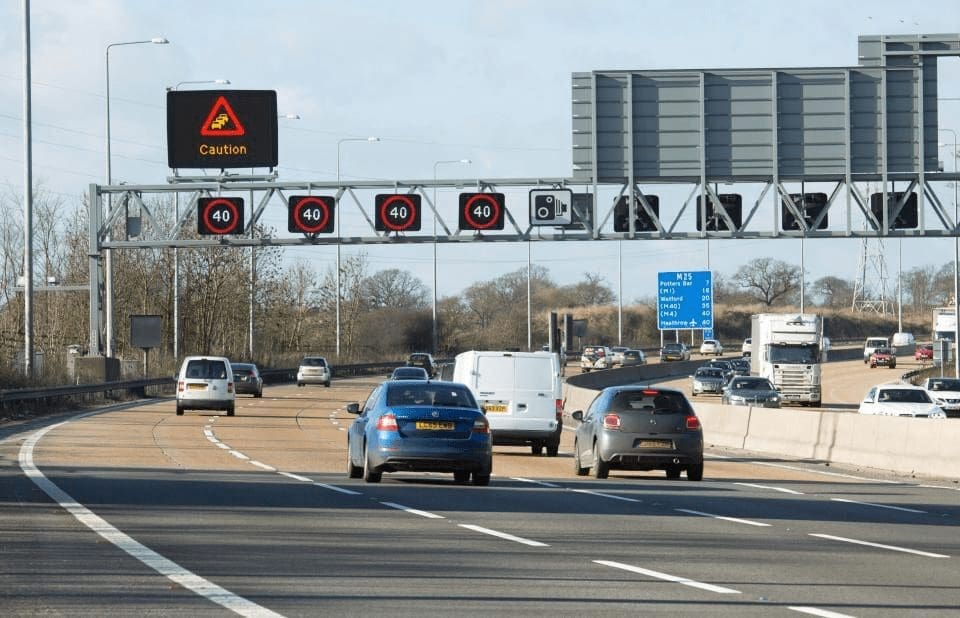A new set of permanent speed cameras have been introduced to smart motorways across the UK’s major road network – and motorists could now be handed fines at any time of the day or night, even if there isn’t a visible speed limit displayed overhead.

The cameras are switched on 24/7, but were thought to only snap motorists who were caught breaking a limit that’s flashed up on the signs. But, according to The Derby Telegraph, motorists could also be penalised for going over 70mph on some smart motorway sections of the M1 – even when the roads are clear.
The new cameras are in operation on a stretch of motorway near East Midlands Airport – between junctions 23a and 24, has four lanes, a hard shoulder and will use variable speed limits. But the M1 is just one of a number of stretches being converted into smart motorways alongside the M6, M25, M3, M20 and M5.
If you’ve not seen one yet, the smart motorways use overhead gantries to control traffic flow by changing speed from the national speed limit down to 30mph if there’s traffic ahead. The hard shoulder can also be made into a live lane at peak hours – and you can even be fined £100 if you ignore the Red Xs overhead, too.
Equally, with speed camera enforcement a local police matter, it’s up to local forces to decide whether the smart motorway cameras in their area operate 24/7, and how strict they want to be about the speed limits too. Derbyshire has enforced a strict 70mph rule – and it’s fairly likely that other forces beyond Derbyshire will adopt the same rules too.
A spokesman for Highways England said: “If no special speed limit is displayed then the national speed limit applies. A speed limit displayed inside a red circle is legally enforceable. If you don’t keep to this speed limit, you are breaking the law. Speed cameras are in operation on smart motorways. If you don’t keep to the speed limit, you may receive a fine.”
The standard fine for being caught speeding is £100 and three points – but for more serious offences the punishment can skyrocket up to £2,500 if your case is taken to court.
But Darren Roberts, manager of the Casualty Reduction Enforcement Support Team (CREST) for Derbyshire police told the Derby Telegraph that the cameras aren’t just there to generate revenue from drivers. Roberts said: “The cameras are not there to generate money. They are there to catch speeders, get reckless drivers off the roads and ultimately lead to a reduction in collisions.”


